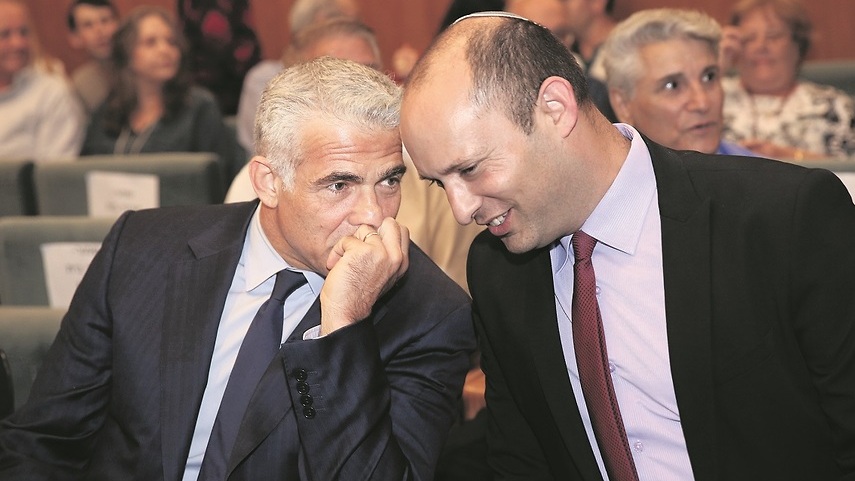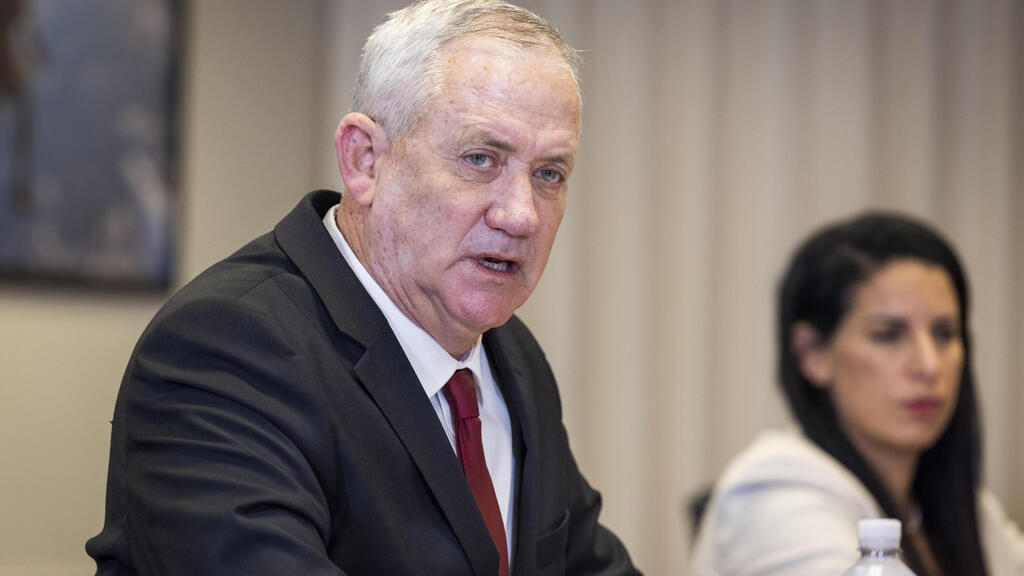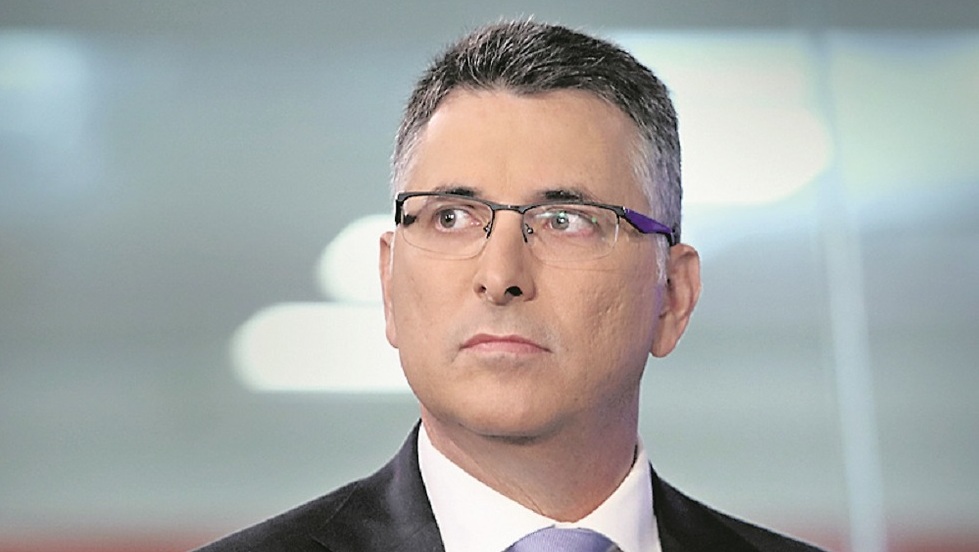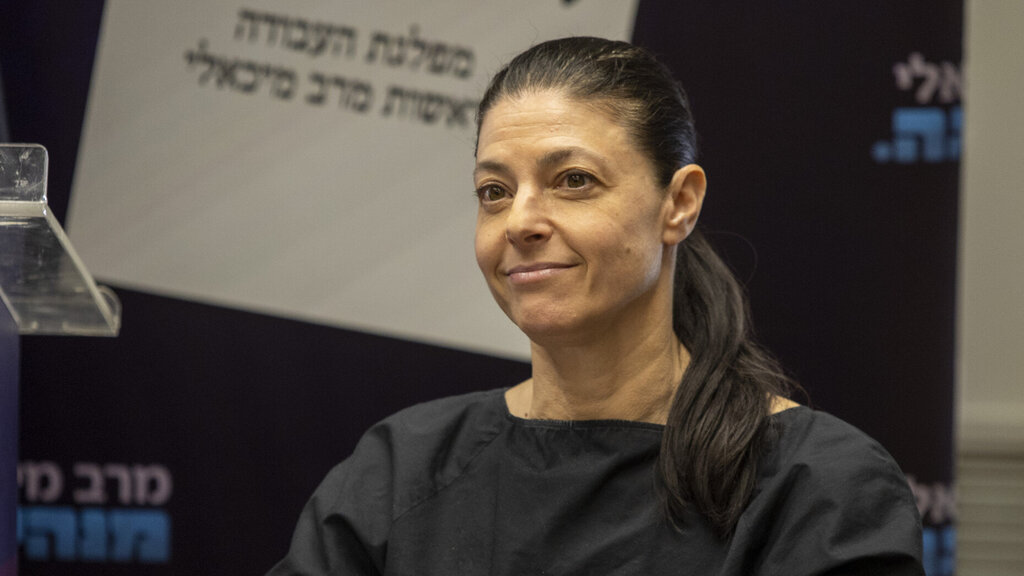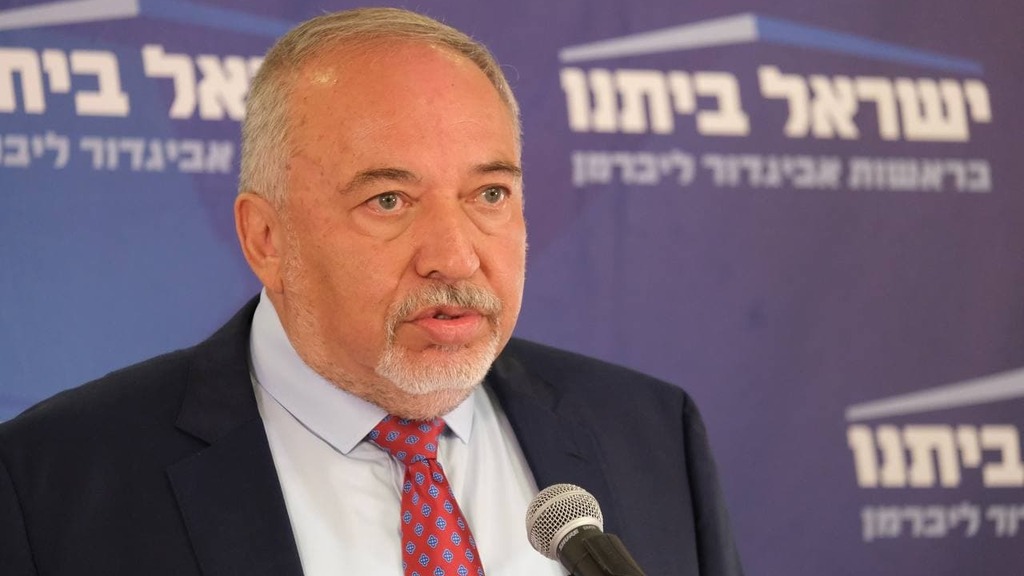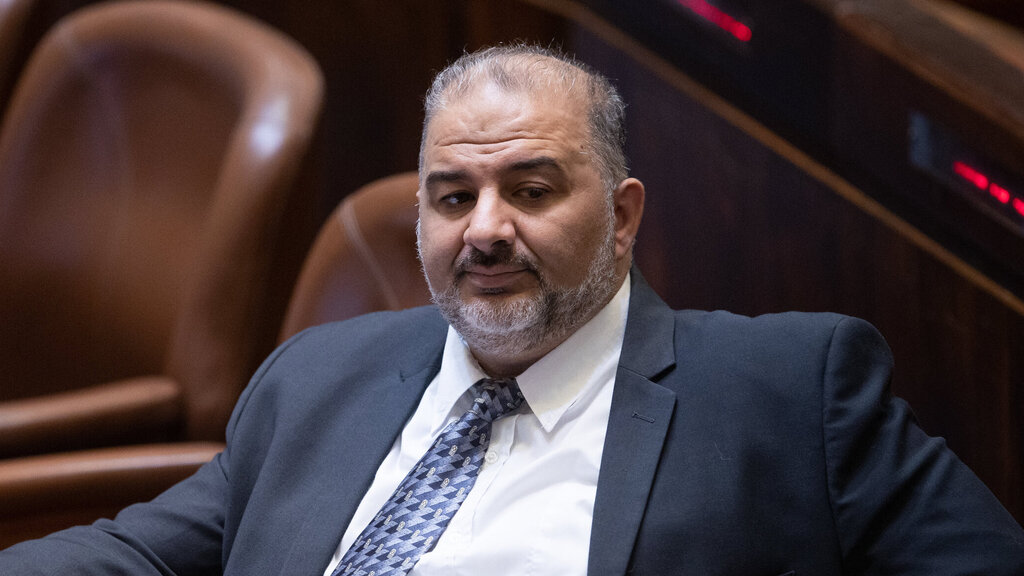After the more than 12 years, Prime Minister Benjamin Netanyahu is set to be replaced Sunday afternoon by his former chief of staff, Yamina leader Naftali Bennett, despite his Yamina party winning only seven seats in the March 23 elections.
The final coalition agreements were signed on Friday and the agenda for the new government finalized, clearing the way for Bennett to become the 13th prime minister since the establishment of the State of Israel.
10 View gallery


Leaders of the parties participating in the new coalition meeting to finalize deals last week in Ramat Gan
(Photo: Raanan Cohen)
This will be the first ever coalition to include an Arab political party and the first since 2013 not to include representatives of the ultra-Orthodox parties.
After the parties making up the new government managed to bridge what often seemed impossible differences, Bennett and alternate prime minister-designate Yair Lapid, the centrist Yesh Atid leader, will be joined by Blue & White, Labor, Yisrael Beytenu, Meretz, New Hope and Ra'am.
The agreements that were finally signed Friday were described as binding for all coalition parties, and individual legislative proposals, policy changes and declared aims would now be subject to the consensus of all members of the government - including on matters of religion and state.
Lapid had in the past promised a lean government with no more than 18 ministers, but had conceded to increase the cabinet in size to 28 in order to satisfy the demands of his many partners.
The outgoing government's 34 ministers had evoked public criticism and at least some of them will now be shut down.
10 View gallery


L-R: Yair Lapid, Naftali Bennett and Mansour Abbas signing the outline of their coalition agreement earlier this month in Ramat Gan
(Photo: Nawaf al-Nabari)
Speaking Friday, the prime minister-designate said that the coalition agreement "brings two and a half years of political crisis to an end."
Israel has had four elections since April 2019, most recently in March. The failure by Lapid and Bennett to put together their coalition would almost certainly have plunged the country into yet another round of voting.
Bennett promised his government would serve all Israelis - religious and secular, Arab and Jew. "We will work together out of mutual responsibility and I believe we will succeed," he said.
Lapid, who will serve as foreign minister until he takes over as prime minister in August 2023, said that Israelis deserve a functioning government that puts the good of the country ahead of all other considerations.
"That is why we formed this unity coalition and all of us are committed to the citizens of Israel," he said.
10 View gallery


Supporters of the new government demonstrating outside the prime minister's residence in Jerusalem on Saturday night
(Photo: EPA)
On Sunday, members of the Knesset will convene in the presence of President Reuven Rivlin and Chief Justice Esther Hayut to approve the new government. Bennett will present his coalition and its agenda as well as its ministers.
Lapid will speak next, followed by the outgoing prime minister – who has not yet confirmed his attendance - and the rest of the Knesset factions will then have nine minutes each to address the plenum.
A new Knesset speaker – Miki Levy from Yesh Atid - will then be elected and preside over the Knesset vote to approve the government and over the swearing in of its ministers.
10 View gallery


Benjamin Netanyahu is leaving office after 12 years as prime minister
(Photo: Reuters)
Netanyahu's office has refused to comment on the Sunday schedule or to provide any information on a possible meeting with Bennett to brief him on matters of national security, but the Likud party insisted there would be an orderly transfer of power.
Yesh Atid ministers will head of the Foreign, Economy, Social Welfare, Energy, Tourism and Social Equality ministries.
Yamina will lead the Interior, Religious Affairs and Settlements ministries.
Blue & White, which is headed by Benny Gantz, will take charge of the Defense Ministry (a position Gantz held in the previous government and will continue to hold), Culture and Sports, Immigration and Absorption, and the Science and Technology Ministry, which has been renamed the Ministry for Innovation. Gantz will also be named as deputy prime minister.
Members of Blue & White will head the Knesset Economic Affairs Committee and serve on the Foreign Affairs and Defense Committee and its sub-committee on intelligence. A member of the party will also be appointed as deputy Knesset speaker.
New Hope leader Gideon Saar will become justice minister and his party will head the Education and Jerusalem Affairs ministries.
A member of the party will also lead the Knesset Constitution, Law and Justice Committee, and a committee tasked with reducing government bureaucracy.
The government will advance New Hope's proposed legislation to limit the length of time for which any prime minister can serve, proposing a maximum of two terms or eight years – whichever lasts longer.
Another legislative agenda of the New Hope party that will be advanced will be the full decriminalization of cannabis.
The Labor Party, led by Merav Michaeli, will receive the Transportation Ministry, the Ministry of Public Security and the Diaspora Affairs Ministry, although the holder of the latter has not yet been decided.
The Knesset Labor, Welfare and Health Committee will be divided into two, and while a Yamina MK will chair the new Health Committee, the Labor Party will head the Labor and Welfare Committee.
After a row over the appointments to the Judicial Selection Committee that threatened to derail the new coalition altogether, Yamina No. 2 Ayelet Shaked will be named as the government representative to the committee only after Michaeli or another Labor representative is seated on the panel.
After Yesh Atid leader Yair Lapid replaces Naftali Bennett as prime minister in 2023, Michaeli will become the representative of the government and a member of New Hope will become a Knesset representative in her place.
Labor will also receive the leadership of a special committee for foreign workers, and party MKs will serve on the Knesset Foreign Affairs and Defense Committee, and chair of one of its subcommittee.
The party will also receive a deputy Knesset speaker position and representation in the European Parliamentary Assembly.
Yisrael Beytenu, whose chair Avigdor Liberman will become finance minister, and which will receive the leadership of the Knesset Finance Committee, will also receive the Ministry for the Development of the Periphery, the Negev and the Galilee.
It is undecided who will head the prestigious Finance Committee and the ministry, both of which were previously given to the ultra-Orthodox parties that are heading to the opposition for the first time in years.
The party also had another significant achievement with the transfer of conversion powers to municipal rabbis instead of the centralized Rabbinate.
Mansour Abbas and his Islamist Ra'am party did sign the coalition agreement on Friday, although his signature is missing from the general document of the party leaders.
The agreement reached with Ra'am states that the party will vote in favor of the formation of the government - and will only join it after its formation.
Abbas is expected to be appointed deputy minister in the Prime Minister's Office and his party will receive chairmanship of the Knesset Internal Affairs and Environment Committee, which will no longer deal with public security but does handle issues relating to construction and housing.
Ra'am will also have one of the deputy Knesset speaker positions and will chair the Special Committee on Arab Society Affairs.
Ra'am also secured a pledge that the government would approve a five-year plan to eradicate violence and crime in Arab society to the amount of NIS 2.5 billion, recognize three Bedouin communities in the Negev as decided by the Netanyahu government, and approve Bedouin settlement in the Negev.
First published: 23:39, 06.12.21


